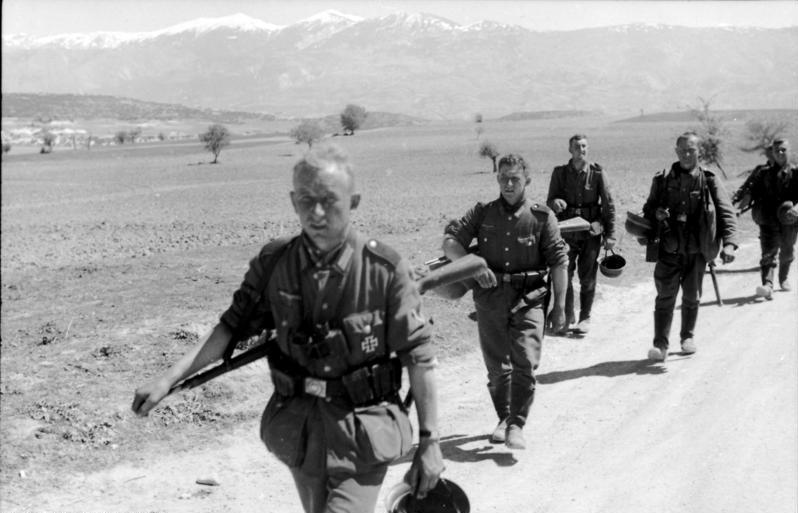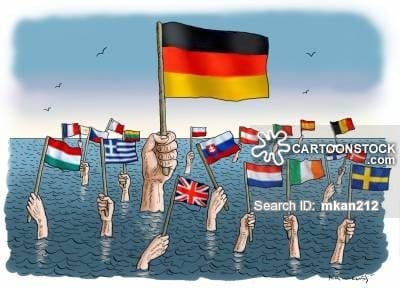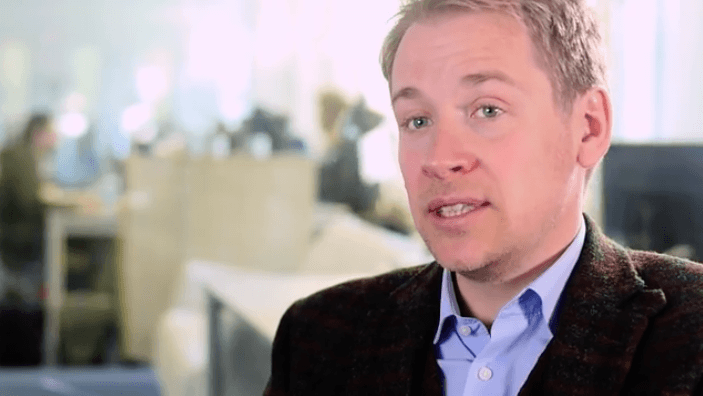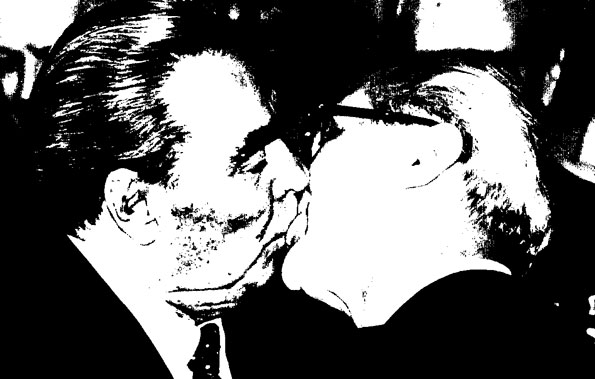RESPECT FOR GREECE: German War Guilt and Obligations Regarding Greece
RESPECT FOR GREECE e.v.
www.respekt.fuer.griechenland.de
German War Guilt and Obligations Regarding Greece
Position paper / March 2019
[dropcap]W[/dropcap]e are a group of citizens who have become engaged in the movement to aid refugees in Greece. We work there on climate protection projects and to support self-help groups. Through working with our Greek colleagues we have come to see that, entrenched beneath a superficial facade, the crimes committed by Germans in the Second World War, are deeply rooted in the collective memory of the people. At the same time we need to recognize how shamefully poor has been Germany’s readiness to assist Greece in rebuilding the land it destroyed, or to compensate those who suffered from its destruction.
For an amazingly long time Greece was viewed by most Germans simply as a holiday destination. The conflict between Germany and Greece over the debt crisis has had the side-effect of bringing both countries closer. But this new awareness about Greece also brings to the consciousness of those born after the events the long repressed terror of the occupation. And so there grows the insight that compensation for this is essential.(1)
The crimes against humanity committed by Germany are not dimmed or diminished by the passage of time. Rather, as a result of increased knowledge, they appear ever more egregious. That is how Greece now regards them. Therefore the obligations arising from war guilt are in no way settled, and with a sharpened perspective, in future they will still not be resolved.
Quite independently of this, whether or not the disputed reparations questions will be negotiated once again in Greece and brought to a conclusion, rests today on matters of political and moral liability, and also on firmly based legal claims that cannot in the short-term be changed. Also, notwithstanding any possible reparations agreement or any precedent, they cannot simply be turned down (rejected).
Over the years the German Federal Republic has always arranged with individual countries, “indirectly” or “extra legally”, reparation contributions that were below the level of their legal entitlements, and for certain persecuted groups, funds or donations that were justified on humanitarian or moral grounds. None of this is adequate. Nevertheless, this is where we start.
We make three demands on the Parliament and Government of the German Federal Republic that we hold to be necessary for urgent and contemporary fulfilment:
• Repayment of the forced loans paid by Greece to the German Reich.
• Repayment of the ransoms paid for Jewish forced labourers in Thessaloniki.
• The establishment of a fund for the long-term development of the rural areas under special consideration as “Martyr Villages.”
........................................................................................................................
REPAYMENTS
FORCED LOANS PAID BY GREECE TO THE “GERMAN REICH”
The present government of Greece has renewed an old demand on Germany. They demand the repayment of loans that were extorted from Greece by the occupation forces. At the Paris Reparations Conference in 1945 – 1946 the Greek government had already taken it up as a “special case”, just as it was treated at all later negotiations about reparations and the burdens of war. Meanwhile, it is amply proven that this cannot be regarded as a cost of occupation but must be treated as an interest free loan. Reparations were contractually agreed. It is evident that the loans were already partly erased during the war. The remaining unpaid sums were described in the official German documents as “Reich Debts”. At the end of the war the remaining debt amounted to 476 million Reich Marks - at today’s value, without interest 7 billion Euros; with interest 11 billion Euros.
In local society, science and politics as well as in the media, more and more voices are raised demanding repayment on principle. (2) In order to reach a clarification, Germany should offer the Greek government to call jointly with them on the “Settlement and Arbitration High Court at the Organization for Security and Cooperation in Europe” (OSZE). A jurisdiction will be made. Such a step would signal a readiness to discuss the issue, for which Greece has been waiting for decades.
RANSOM FOR JEWISH FORCED LABOUR IN THESSALONIKA
On the 11th July 1942, which was a Sabbath, all Jewish men between the ages of 18 – 45 were required to report for registration at the “Platz der Freiheit”. They were brutalised and humiliated. That was the first act of public persecution of Jews in Thessaloniki. After this many thousands of Jewish men were forced to build military roads. In the work camps the most wretched and brutal conditions prevailed. There were epidemics and shootings.
In an effort to rescue their sons and men folk, the Jewish Community attempted to come to an agreement with the chief of the Wehrmacht administration, Max Merten: Buying the freedom of the forced labourers for a ransom of 3.5 billion drachmas (then 38 million Reich marks or 69 million US dollars. The Community, however, in the short period of two months could only raise 2 million drachmas. Unavoidably they were compelled to consent that due to the failed attempt to raise the ransom, the old Jewish cemetery would be destroyed and used as building land for the city of Thessaloniki. With marble-plated and other gravestones, a swimming pool was built for German officers. By the middle of December 1942, the instalments of the ransom were paid. 7,500 forced labourers were freed. A few months later however, they were transported together with 46, 000 other Jews from Thessaloniki, to their deaths in Auschwitz. The Jewish Community demanded that the money be returned. At today’s value it would amount to 45 million Euros. “Respect for Greece” supports this demand on the following grounds: it is already a crime to abuse human beings as forced labourers. To force a ransom payment from them, to release them and then shortly afterwards to murder them, is so terrible that all who have heard about this horrifying deed can never forget it.
FUND FOR THE SUSTAINABLE DEVELOPMENT OF THE RURAL AREAS UNDER SPECIAL CONSIDERATION AS “MARTYR VILLAGES”
During the occupation of Greece the German Wehrmacht and Waffen SS destroyed, totally or in part, more than 1000 villages and killed many thousands of civilians. The German commanding officer sought in this way to crush the resistance of the partisans to the occupation. In all respects it failed.
...............................................................................................................................
(2) Thus, a repayment obligation was already recognized in the past. Federal Chancellor Ludwig Erhard “as early as 1965 assured the then Greek coordination minister Andreas Papandreou that (...) as soon as German unification was signed and sealed, the compulsory loans would be repaid. The Greeks said they were satisfied with the promise.” (Frankfurter Rundschau. 22.11.1995.)
On the orders of the Supreme Command of the Wehrmacht, for an attack upon a German soldier or for his murder, 50 – 100 hostages were to be shot. The Over and above this the German troops were also authorised to kill women and children. Finally, the mere suspicion that villages had assisted partisans was enough to order them to be burned down and the villagers to be murdered. The rebuilding of villages and towns was never supported by the German Federal Government although in the 1950s very many mayors asked for it. But otherwise, Greece received from Germany no support whatsoever with reconstruction. (3) In the earlier post-war times and long afterwards the Federal Government placed the occupation-terror under the category “general consequences of war.” As late as 1995 the German embassy in Athens, in a letter to Argyris Stountouris(4) described the massacre in Distomo “as measures in the course of warfare”. Meanwhile, not only Greeks, but more and more Germans regard such things as crimes against humanity. Bur also, the views of German politicians have changed. It is remarkable that the German ambassador in Athens, Jens Ploettner, in a speech on the 28th May 2018, from the start distanced himself from his predecessor: “With much official correspondence from the last decades – including from the German Embassy – it is difficult to be clear about its meaning. Therefore, I am ashamed, and therefore, Herr Stountouris, I wish to apologize to you.” After the crimes committed in Greece became increasingly widely known, identified and remembered in German society and political life, the time is now ripe to follow words with deeds, without delay and independently of any clarification of the reparations question.
An offer can be made to Greece of a development fund for the rural areas. It is of prime importance that the villages and small towns that suffered worst
...............................................................................................................................
(3) Past loans for commercial customs conditions were at times declared by the Federal Government to be “contributions to reparations.” This is a point of view with which we cannot agree.
(4) As a child in 1944 Arygiris Stountouris had survived the massacre in Distomo. Since 1994 he has fought for compensation. There is a biography of him by Patric Seibel (2016) and a documentary film by Stefan Haupt. (2006)
(5) In the years 2015, 2016 and 2017 only four Martyr Village communities received ca. 370,000 Euros of an available three million Euros – i.e. 12.3%, despite the fact that the proposal is one of the three crucial points of the Future Fund.
From: Antwort der Bundesregierung auf die Kleine Anfrage der Abg. Ulla Jelpke u.a. der Fraktion DIE LINKE, vom 25.07.2018/Drucksache 19/3557
Development measures directed towards improving the welfare of the communities and contributing to the common good, will encourage the participation of all members of the communities concerned. Decisions on these proposals will be made by a commission as well as independent, predominantly Greek experts and intermediaries from the network of Martyr villages and towns. A Greek non-state organization guaranteeing a transparent procedure will support and be entrusted with the development and execution of the project.
From the existing E.U. programme the German fund should distinguish between versatility of its possible uses, and commit to a simple procedural proposal. In addition to this, if it is desired, help communities attract additional forms of production.
Important literature for the Position Paper
Mark Mazower. Griechenland unter Hitler, Engl. Originalausgabe 1995. Deutsche Uebersrtsetzung 2016
Rena Molho, Der Holocaust der griecheischen Juden. Studien zur Geschichter und Erinerung. Deutsche Uebersetsetzung 2016
Hagen Fleicher/Despina Konstantinakou, Ad calendas graccas? Griechenland und die deutsche Wiedergutmachung, in: Hans Guenter Hockerts u.a. Grenzen der Wiedergutmachung, 2006, S. 375-457
Katerina Kralowa. Das Vermaechtnis der Besatzung. Deutsch-griechische Beziehungen seit 1940, 2016
Karl Heinz Roth und Hartmut Ruebner, Reparationsschuld, 2017
___________________________________________________________________________
Erstunterstuetzer
Aus der Politik u.a.
Katja Keul, MdB. Buendnis 90/ Die Gruenen
Jan Korte, MdB, Die Linke
Kevin Kuenert, Juso-Bundesvorsitzener, SPD
Claudia Roth, Vizepraesidentin des Deutschen Bundestag, MbD, Buendnis 90/ Die Gruenen
Gesine Schwan, Vorsitzende der SPD Grundwertekommission
Alex Troost, stellvertretender Vorsitzender der Partei der Linke
Aus Kultur und Wissenschaft u.a.
Shermin Langhoff, Intendantin Maxim Gorki Theater, Berlin
Thomas Ostermeier, Kuenstlerischeer Leiter Schaubuehne am Lehniner Platz, Berlin
Ingolf Pernice. Europarechtler
Stefanie Schueler-Sprinorum, Direktorin des Zentrums fuer Antisemitismusforschung, TU Berlin
Andres Veiel Autor, Theater-und Filmregisseur
Christoph Schmink-Gustavus, Veroffenlichen zur deutschen Besatzung Griechenlands
Aus Vereinigungen u.a.
Sharon Adler, Stiftung Zurueckgeben
Annelie Buntenbach, im Geschaeftsfuhrenden Bundesvorstand des DGB
Klaus Holz, Generalsekretaer der Evanglischen Akademien in Deutschland
Andre Schmitz. Schwartzkopf Stiftung Junges Europa
Klaus Staehle, UnternehmensGruen Bundesverband der gruenen Wirtschaft
Jutta Weuwen, Geschaeftsfuererin der Aktion Suehnezeichen Friedendienste e,V.
Die insgesamt sechzig Erstunterstuetzer siehe Einlegeblatt oder http://respekt-fuer- griechenland.de/?p=2406 Respekt f. Griechenland e.V., Hossteineische Str. 23,1017 Berlin, vorstand@respekt-fuer-griechenland.deAllg. Spendenkonto bei der GI.S bank: IBAN DE42 4306 0967 1175 7746 O1, BIC GENO DE M 1 GLS

This work is licensed under a Creative Commons Attribution-NonCommercial 4.0 International License
ALL CAPTIONS AND PULL QUOTES BY THE EDITORS NOT THE AUTHORS
Read it in your language • Lealo en su idioma • Lisez-le dans votre langue • Lies es in Deiner Sprache • Прочитайте это на вашем языке • 用你的语言阅读
[google-translator]
 Keep truth and free speech alive by supporting this site.
Keep truth and free speech alive by supporting this site.
Donate using the button below, or by scanning our QR code.
And before you leave
THE DEEP STATE IS CLOSING IN
![]() The big social media —Google, Facebook, Instagram, Twitter—are trying to silence us.
The big social media —Google, Facebook, Instagram, Twitter—are trying to silence us.















